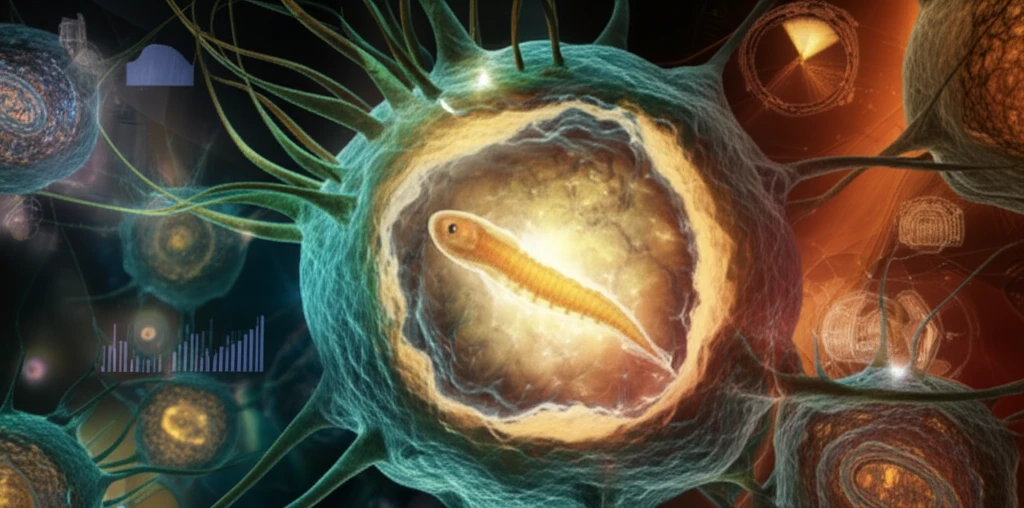
Unlocking the Secrets of Your Immune System: How Scientists Are Revealing Ancient Defense Mechanisms
"Groundbreaking research dives into the evolutionary origins of our immune defenses, uncovering surprising links to ancient life forms and paving the way for future medical advancements."
Our immune system, a complex network of cells and processes, is constantly battling threats to our health, from common colds to life-threatening diseases. But have you ever wondered where this remarkable defense system came from? Recent research is delving into the evolutionary origins of immunity, revealing fascinating connections to ancient life forms and offering new insights into how our bodies protect us.
This exciting field of study, known as evolutionary immunology, explores how immune systems have developed and changed over millions of years. By studying organisms like the amphioxus, a small marine animal, scientists are uncovering clues about the earliest forms of immunity and how they relate to the complex systems we see in humans today.
In this article, we'll explore the latest findings in evolutionary immunology, focusing on a groundbreaking study published in Fish and Shellfish Immunology. This research sheds light on the evolutionary history of protein kinase C-theta (PKC-θ), a key player in our immune response, and its surprising connections to the immune systems of ancient organisms.
Unveiling the Amphioxus: A Window into the Past

The research centers around the amphioxus, a small, fish-like creature that lives in the ocean. Amphioxus is considered a "basal chordate," meaning it shares a common ancestor with vertebrates, including humans. This makes it an ideal organism for studying the evolution of immune systems, as it provides a glimpse into the early stages of immune development.
- The researchers discovered that BbPKC-8/0 is the common ancestor of vertebrate PKC-δ and PKC-θ.
- BbPKC-8/0 has a unique structure with a "proto-V3" domain.
- This proto-V3 domain has two key PxxP motifs, which are essential for its function.
- This research suggests that the immune system of amphioxus may be more complex than previously thought.
Implications for Human Health
The study of evolutionary immunology is crucial for understanding how our immune systems work and how they can go wrong. By studying the origins of immunity, researchers can identify new targets for drugs and therapies to treat a wide range of diseases, from autoimmune disorders to cancer. These findings highlight that the roots of our immune defenses are ancient and that understanding their evolution can open up new avenues for medical innovation.
